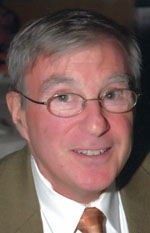Books of the People: Revisiting Classic Works of Jewish Thought by Dr. Stuart W. Halpern, Editor, Maggid Books, Jerusalem, © 2017, ISBN 978-1-59264-470-4, hardcover, p. 350, including list of contributors, $29.95
By Fred Reiss, Ed.D.

WINCHESTER, California – The editors of Encyclopedia Britannica, in the early 1950s, basing their judgment on just three simple criteria: relevance to the modern reader, worthwhile to reread, and whose ideas are able to generate a substantial conversation, selected fifty-four books, calling them “The Great Books of the Western World.”
A revisit in the late twentieth century saw some books added, others removed, bringing the total to sixty.
What about “great books of the Jewish world?” Does such a set exist? Should it? If so, on what basis might inclusion be made? The Torah and Talmud notwithstanding, in Books of the People, editor Dr. Stuart Halpern, who conceived of this volume, brings together compositions from twelve noted scholars. Their essays are arranged in chronological order of the selected work, spanning a millennium, from the medieval authors Saadia Gaon, Judah Halevi, and Moses Maimonides to modern intellectuals, such as rabbis Abraham Isaac Kook, Joseph B. Soloveitchik, and Isaac Hunter. Each essay portrays the education and background of the author, provides a detailed description of its themes and historical context and content, and proposes present-day relevance.
Halpern’s choice of essayists and their subsequent selection of authors and books generally falls into the domain of traditional Judaism, so not everyone will agree that these are the works belonging in a “Great Books of Judaism” collection.
Nonetheless, I think most will agree that the reviewed books are by authors known for their Jewish intellectual greatness and whose ideas, though hundreds of years old, still provide “food” for intelligent and sustained dialogue. Books of the People is an important volume, enlightening the casual reader about rarely read, but religiously important works and furthering the question of what religious answers are most meaningful to a wide spectrum of present-day Jewry; thereby deserving a place among Judaism greatest writings.
*
Dr. Fred Reiss is a retired public and Hebrew school teacher and administrator. His newest book is The Jewish Calendar: History and Inner Workings. He is may be contacted via fred.reiss@sdjewishworld.com.